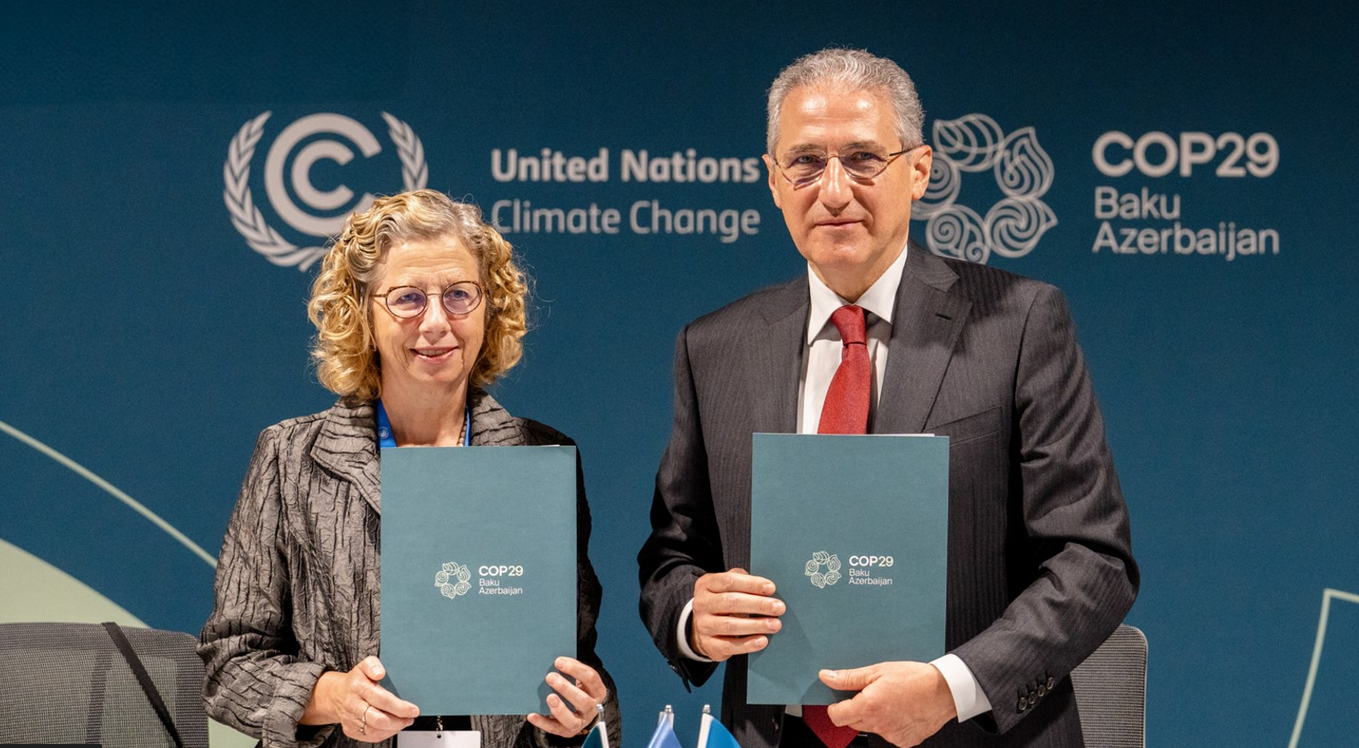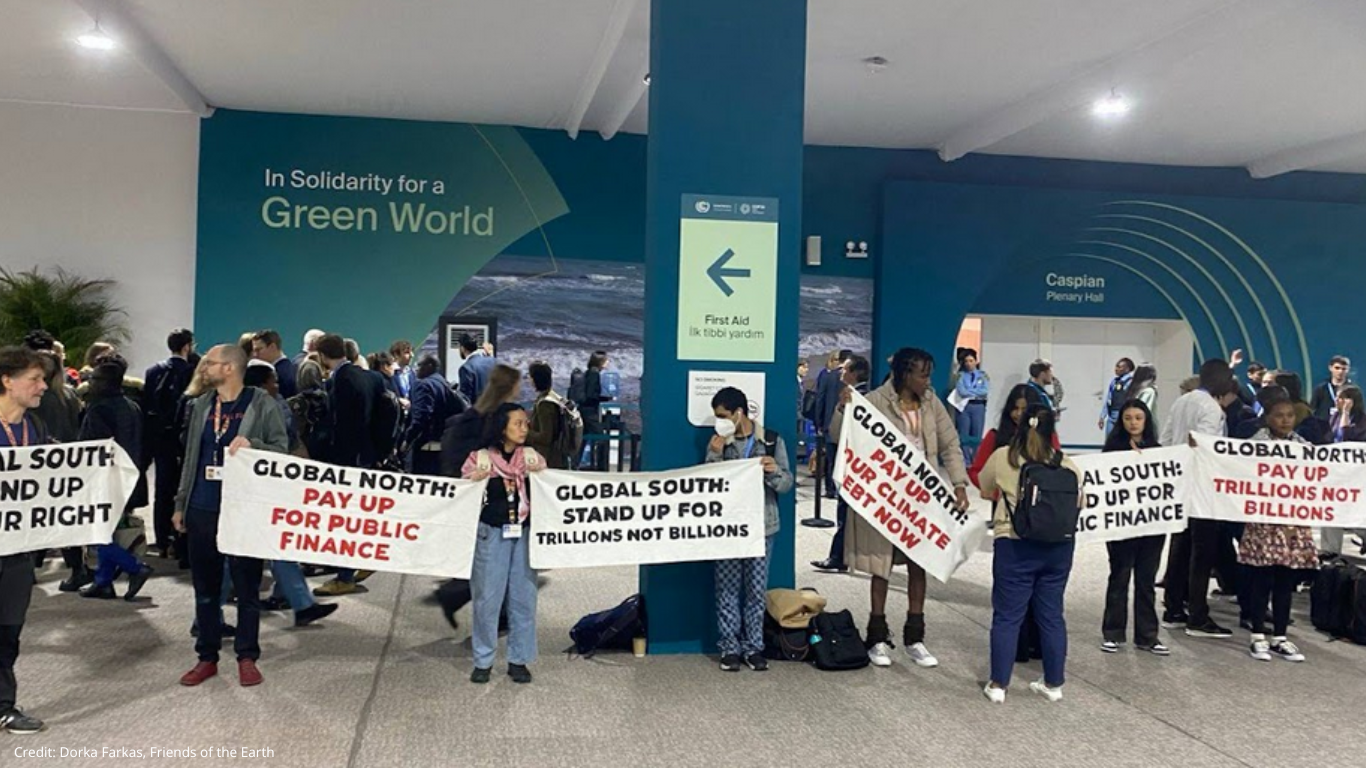Water for Climate and Finance: Key Takeaways from COP29 in Baku
COP29 in Baku, Azerbaijan, concluded on November 22. Often referred to as the "Finance COP," this conference also placed a strong emphasis on water issues. We’ve gathered the key highlights from COP29 that focus on the intersection of water and climate.

29 November 2024 - The climate crisis is most acutely affecting water resources. WMO’s State of Global Water Resources reports show that the water cycle is spinning out of control and becoming more erratic, unpredictable, and extreme.
CLIMATE & WATER
Climate change is expected to lead to more frequent incidents of water pollution, salinization, and eutrophication, driven by increased droughts, floods, sea level rise, and rising water temperatures in certain rivers and lakes. The Baltic Sea, with its relatively small water volume and slow exchange of water with the North Atlantic, is particularly vulnerable. These conditions amplify the impact of climate change, causing many processes and interactions to occur more rapidly than in other seas. To learn more about the effects of climate change in the Baltic Sea in the latest update of HELCOM Baltic Sea Climate Change Fact Sheet.
At COP29, the most significant and expected event has been the adoption of the Declaration on Water for Climate Action. The Declaration commits to applying comprehensive approaches to combating the causes and consequences of climate change for water basins, paving the way for increased regional and international cooperation. Nearly 50 countries joined the adoption of the Declaration, it was approved by prominent non-state actors, including WWF, Water.org & Water Equity, Stockholm International Water Institute and the Islamic Development Bank.
It also emphasizes the need to integrate water-related mitigation and adaptation measures into national climate policies, including Nationally Determined Contributions (NDCs) and National Adaptation Plans (NAPs). To support this, signatories will collaborate to enhance the generation of scientific knowledge on the causes and impacts of climate change on water resources and basins. This will include efforts to share data and develop new climate scenarios at the basin level.

To support the implementation of these actions Baku Dialogue on Water for Climate Action was launched with high-level representatives from the European Union, Finland, Gambia, Germany, Moldova, the Netherlands, Slovenia, the United Arab Emirates, the United Kingdom, and the United States. This initiative will serve as a collaboration platform between COPs, promoting continuity and coherence in water-related climate actions. It will ensure a sustained focus on water and its connections to climate change, biodiversity loss, pollution, and desertification, with an emphasis on actions at the international, regional, river, and basin levels.
Commenting on the Water for Climate Action launch, COP29 President Mukhtar Babayev said: “Water is the link that flows between the climate, biodiversity and desertification crises. By enhancing collaboration between countries and between COPs, the Water for Climate Action initiative will allow us to act on all three fronts”.
From the point of view of water resources, COP29 is an important milestone, an official recognition at a high level that water resources are an integral part of the global climate agenda. The necessity of integrating water management and transboundary cooperation into national climate policy, such as Nationally Determined Contributions and National Adaptation Plans, is not something new, but obviously crucial for effective climate adaptation and mitigation. We will be able to see the first results of this process next year. Parties will provide updates to their own NDCs and NAPs by February 2025 so COP29 is an important moment in making the case for water’s role in these key documents.
CLIMATE & FINANCE
One of the main results of COP29 was the approval of the New Collective Quantified Goal (NCQG) - the target of $300 billion per year by 2035 annually by developed countries to combat climate change in developing countries. This result falls short of what developing countries would hope for at the end of a long negotiation process, and does not meet their real needs considering the scale of the observed impacts of global climate change and the speed of ongoing climate shifts. On the other hand, the call in the final document to jointly create conditions for increasing climate financing for developing countries from all sources to at least $1.3 trillion per year by 2035 seems to leave the door open and maintains hope for a qualitatively higher level of ambition in this critical area. However, it also hints that large sums of money will not simply fall from the sky and that all stakeholders and countries will need to work hard to attract such funds and elevate climate finance to a new level.

OUTCOMES
Overall, climatologists and activists worldwide expressed dissatisfaction with the recent conference. They felt the issues facing Pacific island nations were not adequately addressed, the financial commitments were insufficient, and the outcomes of the conference were, in the words of Shailendra Yashwant, Senior Advisor at Climate Action Network South Asia: "not just a failure, but a betrayal" of developing countries.
***
Article written by Anna Ushakova, CCB Maritime Working Area Leader

